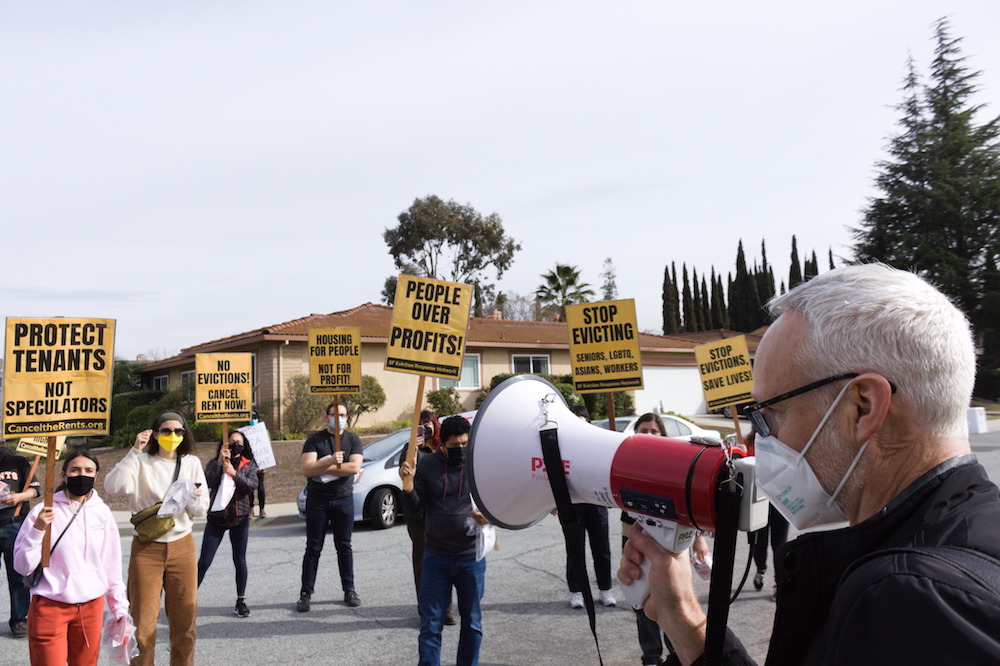Speculators who use the Ellis Act to evict tenants saw their property values rise almost twice as fast as other landlords in the city, with the median haul from tossing long-term renters into the streets at $1.4 million.
That’s what a study, by the Board of Supes Budget and Legislative Analyst, makes clear—and it shows that these speculators can afford to pay far more money in relocation fees than the city currently charges.
The report was requested by Sup. Myrna Melgar, who has introduced legislation to raise the relocation fees, currently at $7,419 per tenant, to $10,000. That bill will be heard Monday/16 at the Land Use and Transportation Committee.

The report shows that the current fees are not enough even to cover first and last month’s rent and security for a new place, and that most tenants will wind up losing money in the move—not the mention the much higher rent they will have to pay.
The numbers show what can only be called a civic disgrace, as speculators make a fortune on evictions:
To assess the potential financial impacts of Ellis Act evictions on property owners, we analyzed the assessed value of properties that were sold subsequent to their owners filing an Ellis Act Withdrawal Petition with the Rent Board and assumedly evicting their tenants. We found that the median assessed value of 59 such properties, representing 135 housing units, increased by 464.5 percent from $299,470 in FY 2011- 12 to $1,690,650 in FY 2020-21, or by approximately $1.4 million. This rate of increase exceeds the 223.4 percent increase in assessed value for all properties for which Ellis Act Withdrawal Petitions were filed during that same period (which includes those that were not sold after the Ellis Act Withdrawal Petition was filed). It also exceeds the increase in all home values in San Francisco of approximately 116 percent between 2011 and 2021 as reported by Zillow. All of this data indicates that evicting tenants through the Ellis Act corresponds to increased value of the properties, particularly if they are sold, but even if they are not.
Melgar is seeking to raise the relocation fees to $10,000 per tenant, with a maximum of $30,000 for a unit.
The legislation would also make clear that if a landlord decides to re-rent any unit vacated by the Ellis Act they also have to rent the rest of the units, at the pre-Ellis price.
This isn’t the first time the supes have tried to raise the relocation fees. In 2014, then-Supervisor David Campos tried to raise the fees to a level that would actually cover not only relocation but rent for four years. Sups. Scott Wiener and London Breed tried to weaken it, arguing that poor landlords would get hurt; Campos didn’t have a BLA report back then, but the bill passed anyway. Then a right-wing legal group sued, and a judge who misapplied the law overturned it.
Melgar’s proposal is more modest than the Campos bill, and there’s plenty of evidence to back it up. In fact, there’s plenty of evidence to say that $10,000 is still way too low, and possibly to move closer to what Campos proposed.
That meeting starts at 1:30pm.
The state Legislature has passed a series of bills that mandate more housing in cities, and San Francisco is supposed to find room and zoning for 82,000 more units by 2030—including 32,000 for low-income people.
But the city currently lacks anywhere near the level of funding it would take to meet that requirement.
In fact, Mayor Breed is refusing to spend voter-approved affordable-housing money, diverting hundreds of millions of dollars to other departments.
(Meanwhile, the state has the most massive budget surplus in history, and instead of spending a huge sum on affordable housing, Gov. Gavin Newsom wants to give car-owners a rebate that a lot of us don’t need.)
So where is that money going to come from, and how much of a gap exists between what the city is prepared to spend and what the state says the city has to spend?
Sup. Dean Preston is holding a hearing on that question at the Government Audit and Oversight Committee Thursday/19. The meeting starts at 10am.




